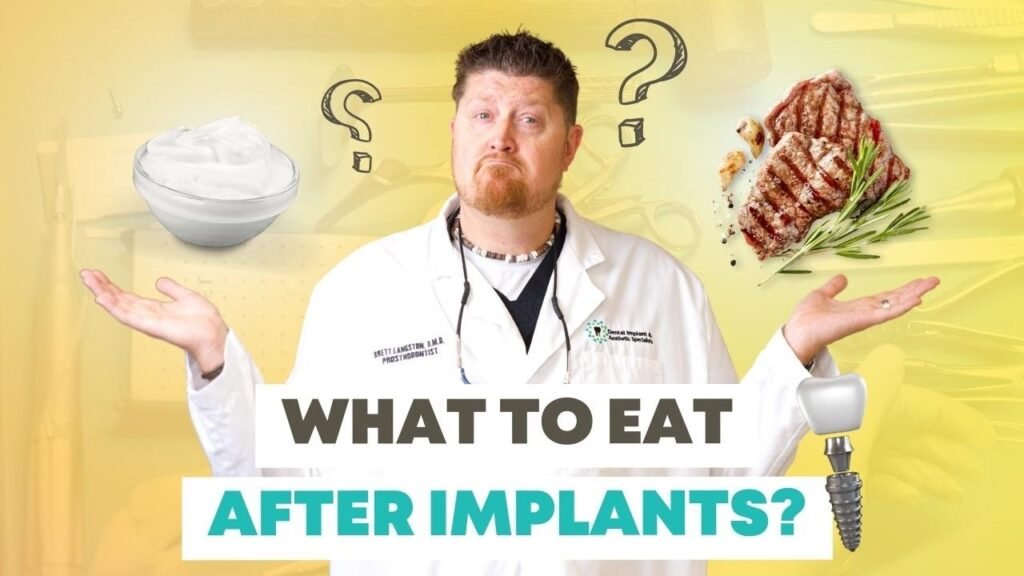Post-Oral Surgery Eating: Tips for a Speedy Recovery

Are you wondering what to eat after oral surgery? It's crucial to stick to soft, easy-to-chew foods to aid in the healing process and prevent discomfort. In this article, we'll explore a variety of nutritious and delicious options to help you stay nourished and comfortable during your recovery. From smoothies and soups to mashed potatoes and yogurt, we've got you covered with practical and tasty meal ideas. Say goodbye to worrying about what to eat and hello to a speedy recovery!
When can I eat after oral surgery?
After oral surgery, it is recommended to wait about an hour before eating. During this time, you can remove the gauze sponges from your mouth and have something to eat. It is important to choose soft foods for the first 24 hours to avoid any discomfort or complications. Additionally, it is advised to steer clear of hot foods and drinks immediately following the surgery.
To ensure a smooth recovery after oral surgery, it is best to avoid drinking from a straw for at least 24 hours. This precaution helps prevent any unnecessary strain on the surgical site and reduces the risk of complications. By following these guidelines, you can promote healing and minimize discomfort during the initial stages of recovery.
In summary, after oral surgery, you can eat soft foods about an hour after the procedure. It is important to avoid hot foods and drinks, as well as using a straw for at least 24 hours. By following these instructions, you can help facilitate a successful recovery process and minimize any potential issues.
Is it okay to eat pasta after oral surgery?
After oral surgery, it is possible to enjoy a comforting bowl of pasta, as long as it is cooked until very soft to avoid any potential damage to the extraction site. However, it is recommended to steer clear of tomato-based sauces, as their acidic nature may lead to discomfort. By opting for a gentle, well-cooked pasta dish, you can still indulge in a satisfying meal while promoting proper healing post-surgery. Remember, it's all about making mindful choices to support your recovery process.
Is it possible to eat with stitches in my mouth?
Yes, you can eat with stitches in your mouth, but it's important to be cautious. Avoid hot foods and drinks that may burn the numb areas or disturb the surgical area. Additionally, steer clear of sharp or crunchy foods for the first few days to prevent any disruption to the healing process or potential bleeding. It's important to prioritize your oral health and the healing of your stitches during this time.
Maximizing Nutrition Without Discomfort
Striving for optimal nutrition doesn't have to come at the cost of discomfort. By focusing on nutrient-dense foods that are easy on digestion, such as leafy greens, lean proteins, and whole grains, you can maximize your nutrient intake without feeling weighed down or bloated. Incorporating a variety of colorful fruits and vegetables into your meals not only ensures a wide range of vitamins and minerals, but also adds flavor and texture to your plate. With mindful choices and a balanced approach, you can achieve peak nutrition without sacrificing comfort or enjoyment.
Navigating the Post-Surgery Diet
After surgery, it is crucial to follow a well-balanced and nutritious diet to aid in the healing process and promote optimal recovery. Incorporating plenty of fruits, vegetables, lean proteins, and whole grains can help provide essential nutrients and support overall health. It is important to stay hydrated and avoid processed foods high in sugar and unhealthy fats to ensure a successful post-surgery recovery.
Navigating the post-surgery diet can be challenging, but with proper planning and guidance from a healthcare professional, you can create a meal plan that meets your specific dietary needs. Listening to your body's cues and gradually introducing new foods can help prevent any discomfort or complications. Remember to prioritize protein intake to support tissue repair and muscle strength, and don't hesitate to ask for support from loved ones or a dietitian to help you stay on track with your recovery goals.
Remember, following proper guidelines for eating after oral surgery is crucial for a smooth and speedy recovery. By sticking to soft, easy-to-chew foods and avoiding hot, spicy, and hard-to-chew items, you can ensure that your healing process is as painless and effective as possible. Taking care of your diet post-surgery will not only aid in your recovery but also prevent any complications that could arise from improper food choices. So, make sure to follow your dentist or surgeon's advice and listen to your body's cues to ensure a successful healing process.